1. Rare Burgers
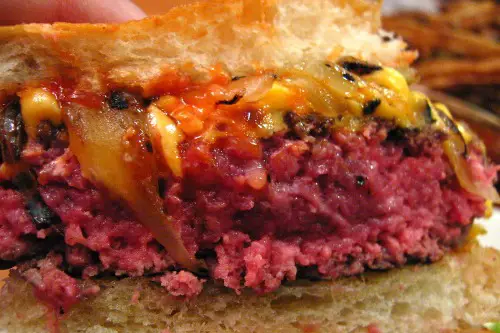
In the U.S., it’s not uncommon to find burgers that are practically mooing, especially at BBQs where flavor is king. Some people swear by a medium-rare patty with a warm, pink center. But in countries like Canada and parts of Europe, serving undercooked ground beef is illegal due to health risks from E. coli. Their food safety rules demand all ground meat be cooked to at least 160°F.
The issue is that harmful bacteria live on the surface of meat, and grinding it spreads those microbes throughout. Cooking a steak rare? Totally fine. But with ground beef, there’s a higher risk unless it’s thoroughly cooked. That’s why rare burgers can land you in legal trouble overseas.
2. Raw Milk Cheese
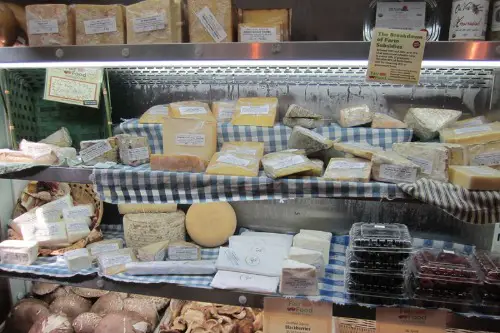
At a backyard BBQ, you might see a cheese board with raw milk cheddar or blue cheese. Americans love a funky wedge or two with smoked meats. But in countries like Australia, selling unpasteurized dairy products is largely banned. The risk of listeria and other foodborne pathogens makes raw milk cheese a no-go.
Some places require that cheeses be aged at least 60 days to reduce bacteria. The U.S. allows certain raw milk cheeses under those guidelines, but others go much stricter. So that creamy, fresh wedge of brie might not fly elsewhere. At a BBQ abroad, you’d better stick with the pasteurized stuff.
3. Foie Gras
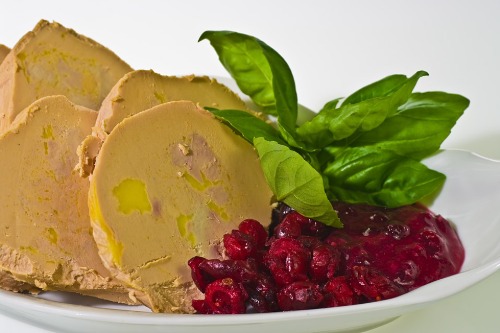
This fancy appetizer occasionally shows up at upscale American BBQs, especially in foodie circles. It’s rich, indulgent, and often grilled or smoked for added flavor. But in places like the UK, India, and parts of the U.S. like California (on and off), foie gras is banned. The reason? Animal cruelty concerns.
Foie gras is made by force-feeding ducks or geese to fatten their livers. The practice is called “gavage,” and it’s considered inhumane by many animal rights groups. Some countries have outlawed both its production and sale. So if you’re slathering foie gras on crostini at a BBQ, you better check local laws first.
4. Cherry Pit Desserts
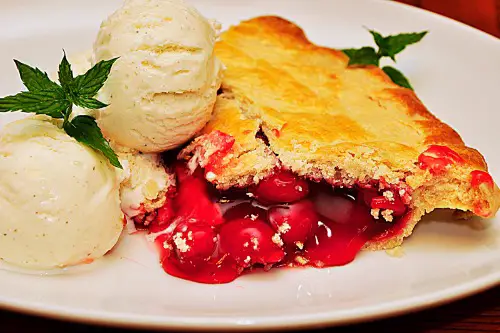
At many BBQs, you’ll see cherry pies or bowls of fresh cherries out for dessert. But watch out—some people love to cook cherries whole, pits and all, for flavor. In countries like the UK, serving foods with hidden inedible objects (like cherry pits in baked goods) can be considered a violation of food safety laws. The danger lies in the risk of choking or breaking a tooth.
Also, cherry pits contain amygdalin, which can convert to cyanide when crushed or chewed. While a few pits won’t harm an adult, high exposure is a legitimate concern. In the U.S., people largely shrug it off. But other countries regulate it more tightly to avoid accidental poisoning.
5. Whole Roasted Pig

The whole hog roast is a centerpiece at many Southern BBQs and Hawaiian luaus. It’s a showstopper, often cooked in a pit or rotisserie-style. However, in countries like Saudi Arabia and Iran, serving pork in any form is strictly forbidden due to religious dietary laws. Even possessing it can be a criminal offense.
That means a whole pig at a BBQ would be more than frowned upon—it could lead to legal action. In other nations with high Muslim populations, pork is similarly restricted. The American enthusiasm for pulled pork sandwiches wouldn’t translate well everywhere. What’s a celebration here could be an arrest there.
6. Kool-Aid Pickles
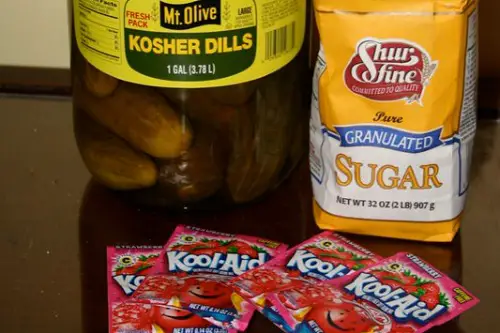
Known as “Koolickles” in the South, these neon-colored pickles soaked in sugary drink mix are a regional BBQ oddity. Kids love them, and they’re often made at home in big jars. But in countries like Norway and Denmark, food colorings such as Red 40—used in Kool-Aid—are either banned or heavily restricted. Authorities there link artificial dyes to behavioral issues in children.
American regulations allow dyes as long as they’re labeled, but the EU and other nations are far stricter. The combination of sugar, dye, and preservatives wouldn’t pass their food safety standards. So this bizarre BBQ side dish might land you in trouble abroad. They may be a Southern classic, but they’d be outlawed in Scandinavia.
7. Corn Dogs
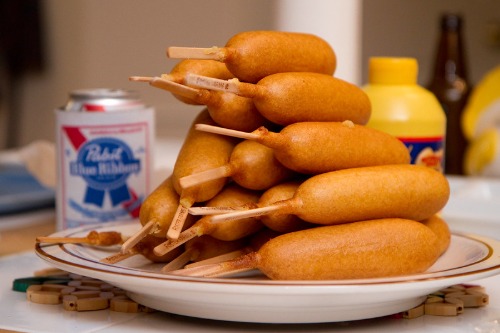
While not strictly BBQ, corn dogs are a common sidekick at backyard parties across the U.S. These deep-fried hot dog-on-a-stick treats are especially popular at fairs and summer gatherings. But in countries like Iceland, trans fats—used in many frying oils—have been banned outright since 2011. Their health authorities say artificial trans fats raise bad cholesterol and contribute to heart disease.
In the U.S., trans fats have been phased out in many places, but enforcement and loopholes vary. Corn dogs cooked with older recipes or cheaper oils could run afoul of international law. Frying up a batch could mean breaking food safety regulations overseas. It’s a guilty pleasure here, but a punishable one elsewhere.
8. Smoked Meats with Liquid Smoke

Liquid smoke is a shortcut often used to flavor BBQ sauces and smoked meats when real smoking isn’t practical. It adds that signature campfire taste without the fire. But in countries like the EU, certain formulations of liquid smoke are restricted due to concerns over carcinogenic compounds like polycyclic aromatic hydrocarbons (PAHs). These chemicals can form during the manufacturing process.
While the U.S. FDA permits it in regulated quantities, European agencies are far more cautious. They’ve limited or banned several brands and ingredients based on toxicity studies. That tangy brisket might taste like summer, but it could raise red flags elsewhere. In some cases, your bottle of liquid smoke could be confiscated at customs.
9. Horse Meat
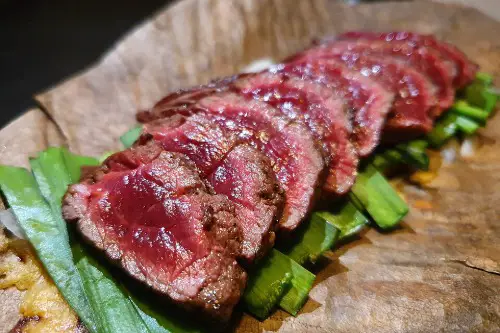
It’s rare, but you’ll find horse meat at some traditional or experimental BBQs, especially among immigrant communities. It’s usually grilled or smoked like beef, and some people say it’s leaner and sweeter. But in the U.S., horse slaughter for food is effectively banned, though not explicitly illegal. Meanwhile, in countries like France, Belgium, and Kazakhstan, horse meat is entirely legal and even traditional.
So the weird twist here is that something banned in America might not be elsewhere. Hosting an international BBQ might mean explaining why this particular protein causes so much controversy. Cultural taboos make horse meat a hard sell at most American events. But in other countries, the shock might be that we don’t eat it.
10. Grilled Frog Legs
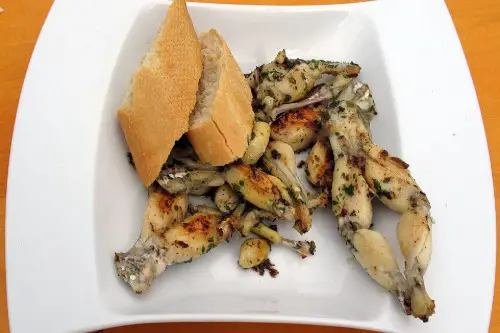
This Southern delicacy shows up at Cajun BBQs and is usually fried or grilled. They’re often compared to chicken and served as an exotic side dish. However, in places like California, harvesting wild frogs is prohibited, and in India, eating frogs at all is illegal under wildlife protection laws. Frogs are seen as vital to the ecosystem, and overharvesting has endangered some species.
The U.S. regulates it more loosely, depending on the state. But in many countries, frogs are protected just like endangered birds or mammals. Serving them at a BBQ might not only break the law but also rile up conservationists. What’s tasty in Louisiana could spark outrage across the ocean.
11. Wild Game Meats
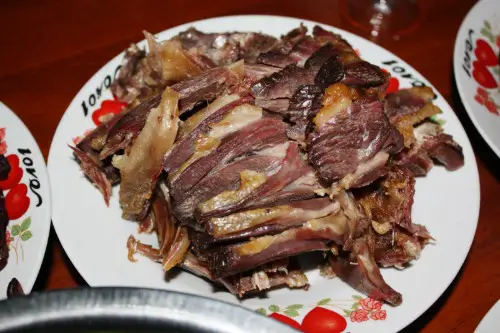
From venison burgers to grilled boar sausages, wild game meats make a rustic addition to any American BBQ. Hunters often bring their own catches to share with friends. But in countries like Japan and the UK, selling or serving uninspected wild game is strictly regulated or banned. The lack of oversight means a higher risk of parasites and disease.
In the U.S., state laws usually govern how game can be served, but informal BBQs often fly under the radar. Elsewhere, the penalties for serving it without proper inspection can be steep. Even gifting game meat can be considered unsafe or illegal. That wild flavor might cost you your grill privileges abroad.
12. Raw Oysters
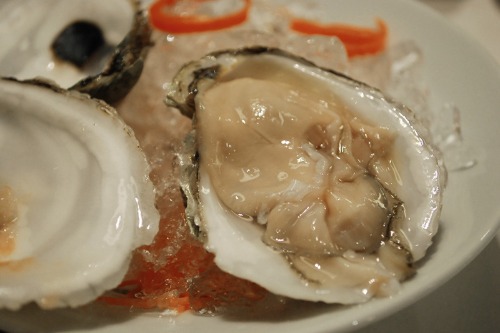
Some coastal BBQs offer raw oysters on the half shell as a fancy starter. They’re often served chilled with lemon, cocktail sauce, or a spicy mignonette. But in countries like Switzerland and parts of Australia, serving raw shellfish without strict temperature and origin controls is forbidden. Oysters are notorious carriers of norovirus and Vibrio bacteria.
The U.S. has its own regulations, but many private BBQs skip the paperwork. Overseas, the margin for error is smaller—oysters must be traceable and tested. Even if they’re fresh, improper handling can make them illegal. That luxurious BBQ treat might be too risky to serve elsewhere.
13. Jell-O Salads
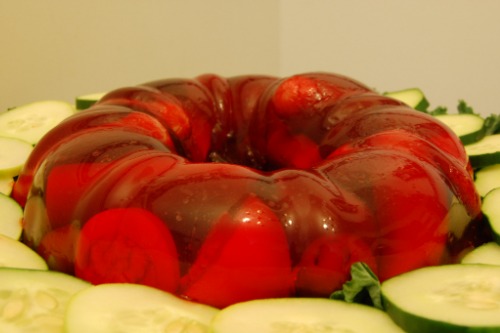
Midwestern BBQs still proudly feature Jell-O salads packed with fruits, marshmallows, and sometimes even shredded vegetables. It’s a quirky, nostalgic dish that confuses outsiders. But in the EU and other countries, food additives like BHT and artificial sweeteners found in some gelatin mixes are banned. These chemicals have been linked to potential hormone disruption and other health risks.
In America, they’re considered generally recognized as safe (GRAS) by the FDA. But overseas, they’ve fallen out of favor or been outright prohibited. What seems harmlessly weird to us might be viewed as toxic across the pond. Your wobbly dessert could wobble you into legal trouble.
14. Fireball Whisky
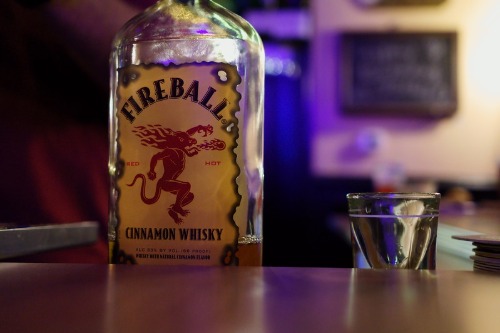
A common backyard BBQ includes drinks, and a popular party staple is Fireball Whisky. Its cinnamon kick and low price make it a hit for shots and cocktails. However, this liquor was briefly pulled from shelves in countries like Norway, Finland, and Sweden due to high levels of propylene glycol. That’s a chemical also used in antifreeze, though in far smaller concentrations here.
In the U.S., it’s still approved for consumption under FDA guidelines. But the European Food Safety Authority set lower limits for this additive, forcing a reformulation abroad. So while you’re tossing back Fireball at a July 4th cookout, just know that drink could be contraband in parts of Europe. Cheers—with caution.
This post 14 Things Served at American BBQs That Would Be Illegal in Other Countries was first published on American Charm.


